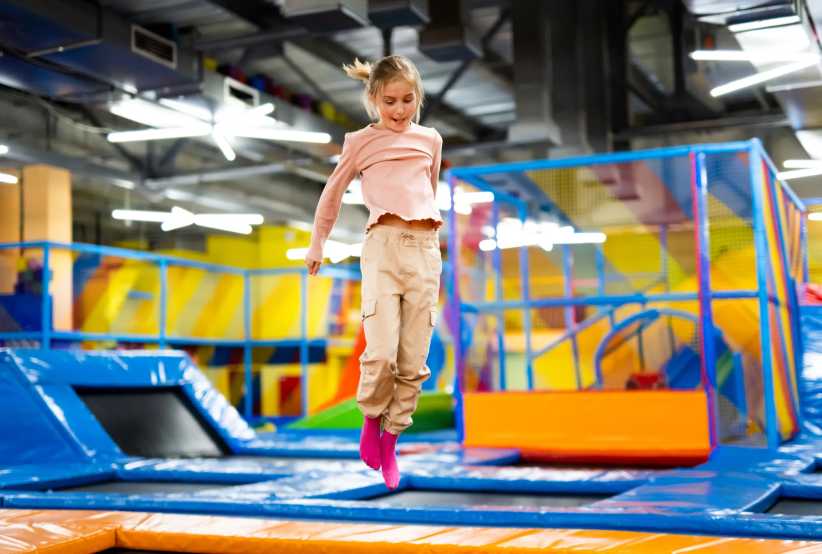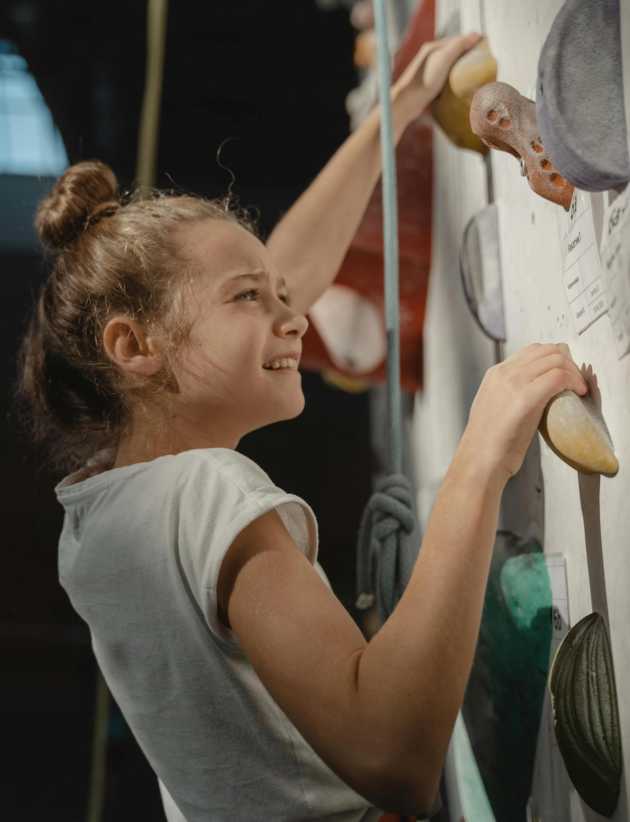Brooke de Lench was watching one of her sons play in a high school football game, and what she saw worried her. He looked slow. Confused. Uncoordinated.
No one else seemed to notice, but she saw enough to set off alarm bells. It wasn’t just that he was having an off day. She later took him to the doctor, and results confirmed her fears — her son was suffering from the residual effects of at least one concussion, and possibly more.
“I was told to never let his head be in a collision again,” says De Lench, the founder of MomsTeam.com, a website whose mission it is to empower parents of young athletes through information and resources. During her son’s recovery, the experience was frightening enough to launch De Lench on a mission of spreading the word about the dangers of concussions and other sports injuries.
With the announcement of a $765-million settlement agreement last month between the NFL and more than 4,000 retired players who claimed the league hid the dangers of concussions, many parents may be wondering about the long-term effects of head injuries sustained by youth athletes. Many of the professional players have shown evidence of a degenerative brain disease similar to Alzheimer’s disease that is believed to be caused by repeated head trauma.
“I think parents really need to understand the ramifications,” says De Lench, author of “Home Team Advantage: The Critical Role of Mothers in Youth Sports.”
Concussions can happen in any sport, not just football. They occur in soccer, baseball, lacrosse, basketball, wrestling, hockey, cheerleading, and volleyball, among other sports. No activity is immune. With kids playing harder than ever in today’s ultra-competitive world of youth sports, it only makes sense.
Concussions are brain injuries that occur when a blow to the head or body causes the brain to move rapidly inside the skull. Concussions can also be caused by a fall, a collision between players, or with an object such as a goalpost. Even a mild blow to the head — a “ding” or “getting your bell rung” — can have serious consequences.
Recent research has shown that because of the way their brains are growing, adolescents are more sensitive to the effects of a sport-related concussion than adults or children. In addition to long-term damage, youth athletes who have suffered a concussion are at risk of Second Impact Syndrome, a rare but usually fatal condition. If a child who has not completely recovered from a concussion receives a second blow to the head, it can cause massive swelling in the brain that can lead to sudden death.
Various studies reveal some frightening facts: brain changes in children who have sustained a mild traumatic brain injury, or concussion, persist for months following injury — even after the symptoms of the injury are gone, according to a study published in The Journal of Neuroscience. The research suggests that, among other things, concussions alter the brain’s white matter — the long fibers that carry information from one area of the brain to another.
Yet 41 percent of student athletes returned to play too soon after a concussion, according to another report. The study found that a shocking 16 percent of high school football players who lost consciousness during a concussion returned to the field the same day. More than 20 percent of concussions in boys’ and girls’ soccer and basketball were repeat concussions. In fact, 16.8 percent of high school athletes suffering a concussion had previously suffered a sport-related concussion, either that season or in a previous season.
De Lench, a former athlete herself and strong supporter of youth sports programs, understands the desire for kids to return to play. For many kids, being an athlete is how they define themselves. It is not only part of their identity, but is also a huge part of their social life.
“Kids should not be pulled out of sports. Sports are critical — critical! — for some kids. Pulling them out is not the remedy here,” she says. “We need to empower parents to make sure coaches are trained properly, to make sure kids get the right kind of physical training such as neck-strengthening, and to make sure kids are taught to self-report symptoms.”
Some school districts around the country are requiring young athletes to undergo cognitive testing prior to participating, so they can have a “baseline” to determine when a player can safely return to play, but such information is only useful if students understand the importance of reporting symptoms and if parents and coaches are vigilant about taking note of possible injuries.
So what are the most important things a parent — and coach — should know about concussions? First, seek professional medical attention if your young athlete shows any sign of injury, such as appearing dazed, stunned, confused, or clumsy, or if she exhibits a loss of memory, mood and behavior changes, or even a brief loss of consciousness. Some symptoms may not show up for hours or days, so parents need to be tuned in.
A young athlete with diagnosed concussion should not be allowed to return to play on the day of injury, regardless of the medical resources available or her level of athletic performance. All concussion management guidelines, old and new, agree that no athlete should be allowed to return to play while exhibiting post-concussion signs or symptoms. Some call for at least one symptom-free week before returning to practice or play. Because activities that require concentration and attention might exacerbate the symptoms and delay recovery, children should limit exertion and school-related activities until symptom-free (e.g. no homework, no text messaging or videogames, and staying home from school).
For young people ages 15 to 24, sports are second only to motor vehicle accidents as the leading cause of brain injury, according to the U.S. Centers for Disease Control and Prevention. But even far younger children have suffered concussions on the field and on playgrounds.
“The more parents know, the more they can make a difference,” De Lench says. “I always tell parents to think about the life-cycle of their child. Think about how that child will feel when they are 30 or 40 and they have cognitive issues or pain from injuries.
“You as a parent need to understand that you are the guardian of your child and their future.”
Additional information on concussions and youth sports, including an online training course for coaches, can be found on the U.S. Centers for Disease Control and Prevention website at www.cdc.gov/concussion/sports/index.html. For more, visit www.MomsTeam.com.






















